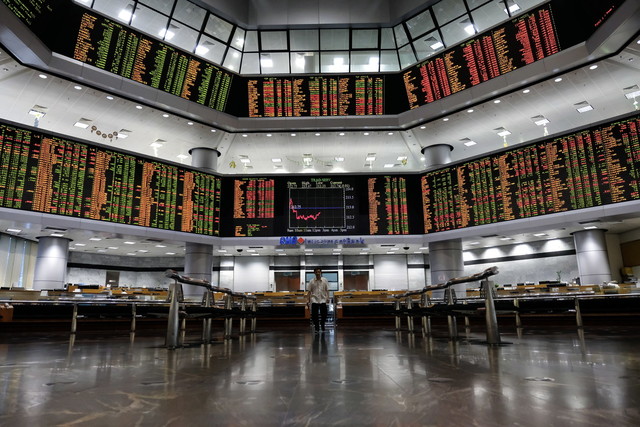KUALA LUMPUR, April 16 (NNN-BERNAMA) — The domestic capital market is expected to remain resilient and orderly, underpinned by Malaysia’s strong macroeconomic fundamentals, ample domestic liquidity, and supportive capital market infrastructure.
The capital market will continue to support Malaysian economic growth in 2020 through the financing of business expansion and infrastructure, said the Securities Commission (SC) in its 2019 Annual Report released today.
However, it noted that the domestic capital market will continue to be influenced by key global developments, with volatility driven primarily by the direction and pace of global economic growth and global monetary policy stance, and the uncertainty in relation to the ongoing trade and geopolitical tensions.
The market’s performance will also be influenced by greater clarity in ongoing domestic policy reforms.
Accordingly, the Malaysian economy is expected to remain on a steady growth path, backed by firm domestic private sector activities.
Growth will be underpinned by sustained manufacturing activities and further supported by resilient services sector expansion, especially in the wholesale and retail trade sub-sector, the SC said.
On the demand side, a stable labour market amidst relatively subdued inflation will continue to drive private consumption expansion, while the resumption of strategic public projects is expected to provide impetus to investment growth.
Meanwhile, global economic growth is projected to improve to 3.4 per cent in 2020 from an estimated 3.0 per cent growth in 2019.
This outlook, however, will continue to remain uncertain, subject to sustained de-escalation of global trade tensions following the finalisation of the phase one trade deal between the United States and China, as well as the expected stabilisation and rebound in activities in some emerging market economies (EMEs).
“Geopolitical tensions remain key risks to the outlook,” the SC said.
On ASEAN, the region’s growth outlook will be subjected to downside risks arising from prevalent global trade and policy uncertainties, given its strong interconnectivity with the global economy.
Nonetheless, ASEAN is expected to remain the world’s fastest-growing region, underpinned by strong macroeconomic fundamentals and a supportive policy environment.
Concurrently, activities in the global capital market will continue to be shaped by developments in the global economy and the relatively easy global financial conditions, aided by the prospect of continued accommodative global monetary policies.
Volatility, however, would likely persist, given heightened downside risks to growth, the SC said.
Global equities’ prospects are expected to remain generally positive, underpinned by continued commitment from global policymakers to support growth.
Nevertheless, the SC said a prolonged period of a low-interest-rate environment will likely intensify yield-seeking trends, further contributing to already stretched valuations in some equity markets.
In the global bond market, performance will continue to be reflective of the overall trends in global risk aversion, with the shape of the yield curve anticipated to remain relatively flat.
Meanwhile, credit spreads between EMEs and advanced economies (AEs) are projected to remain relatively contained, given the more favourable growth outlook in the former.
However, the overall performance on EMEs would be differentiated, favouring those with stronger macroeconomic fundamentals, SC said.
— BERNAMA






